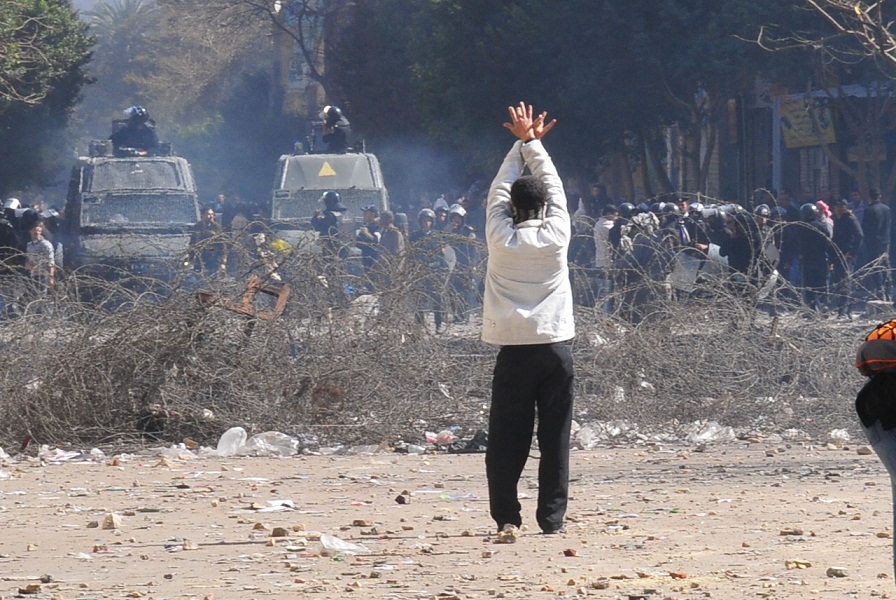
(AFP File Photo)
On Monday President Abdel Fattah Al-Sisi met with Mohamed Fayek, president of the government-backed National Council for Human Rights (NCHR), to discuss ways to improve personal and political freedom in Egypt, and the state of the country’s prisons.
Al-Sisi told Fayek that his goal is to balance security and fight terrorism while providing “the rights and freedoms that have long been sought by the Egyptian citizen before the revolutions of 25 January and 30 June,” presidential spokesperson Ehab Badawy told state-run Al-Ahram.
Women’s rights, empowerment of the youth, and the right to work are among Al-Sisi’s highest concerns, said Badawy.
Fayek voiced concerns about the conditions of prisons, namely the length of imprisonment and the NCHR’s inability to gain regular access to detention facilities. Al-Sisi guaranteed that the NCHR would have unfettered access to prisons, and the presidency would continue “the coordination of state agencies with national institutions” to uphold human rights.
Also on Monday, a delegation from the NCHR visited the Qanater Women’s Prison in Qaliubiya to assess that conditions meet international standards.
The delegation met a number of prisoners and administrators, reported Al-Ahram, inquiring about recreation, education, rehabilitation, child care (young children accompany their mothers in prison), and vocational training.
Prison overcrowding and the prohibition of human rights groups from visiting prisons has been a recurring problem in Egypt. According to the Ministry of Interior, around 16,000 people have been arrested since former president Mohamed Morsi was deposed in a military-backed ouster. Wiki Thawra, a nonprofit cooperative compiling data from human rights groups in Egypt, places the number of arrests and prosecutions at over 41,000. Many of those in custody are Morsi supporters awaiting formal charges.
On 28 June, Prosecutor General Hisham Barakat ordered teams to perform surprise inspections of prisons around the country. The teams “checked on the status of inmates in the prisons, and surveyed the prison documents and the documents pertaining to the implementation of judicial verdicts”, said the prosecution.
The prosecution discovered that there are issues of overcrowding in prisons in Mansoura and Alexandria and “it was also noted that there were no toilets in the men’s cells in the Mansoura general prison”, while in Damanhur, prisoners lacked beds and adequate ventilation.
The surprise inspections came just days after an official from the Ministry of Interior said that Egyptian prisons are “like hotels”.
In May Amnesty International, along with the Egyptian Initiative for Personal Rights and the Nadeem Center for the Rehabilitation of Violence and Torture, called for an end to enforced disappearances at Al-Azouly Prison in Ismailia. Rights groups have raised accusations of torture occurring in several prisons around the country.
The NCHR did not reply to a request for comment.







